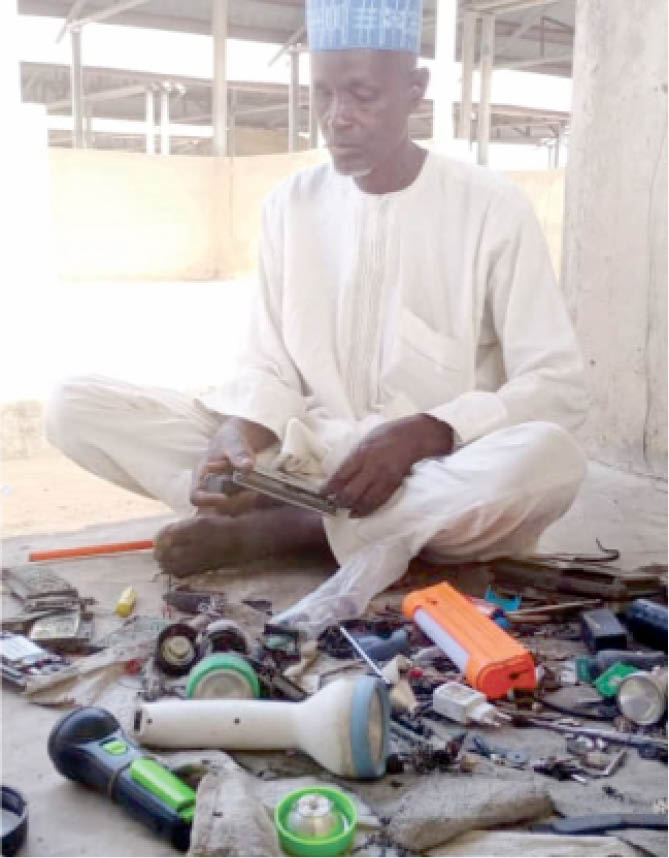How technology forced Borno’s blind radio repairer to change job
Modu Mala who lives in Bama town, Borno State is totally blind but that didn’t stop him from working hard to earn a living. In the past 33 years he has engaged himself in repairing radios and is well known for his expertise in his job. Military yet to submit estimates for arms – FG […]

Modu Mala
Modu Mala who lives in Bama town, Borno State is totally blind but that didn’t stop him from working hard to earn a living.
In the past 33 years he has engaged himself in repairing radios and is well known for his expertise in his job.
Mala, who was a radio enthusiast, learned about antique radio repair including AM and AM/FM receivers 33 years ago, in his youth years.
“At the onset, it was difficult to learn to repair a radio as a blind man but later I find it easy to fix all common radio issues my clients may experience. Transistor radios were in vogue in those days and radio technicians were always busy at work just like today’s GSM technicians.
“There were two popular technicians then in Bama – D.O.D and Alhaji Bulama Modu Mangari – who inspired a lot of us. I started as a radio apprentice technician in 1988 and in the process I spoiled a lot of receivers before I graduated. Later, I could repair radios and return them to the owners without delay,” he said.
Mala said he could fix all the faulty radio parts by feeling and listening to the sounds but when it came to joining two or more electronic parts by soldering, he allowed other technicians who are not blind to handle that.
He could detect the faulty circuit of radio devices, loosen and tighten up parts with a screwdriver as well as replace spare parts.
The blind repairman said he had sought for financial assistance to buy more tools and set up a workshop and help to build up the skills in young learners.
The local authorities in Bama were moved by the ingenuity of Modu and released money for him to be self-standing, yet corrupt officials allegedly diverted it.
“I applied for financial support to the local government council in 1992 and the request was granted. However, one official, who happened to be a supervisor, received the money on my behalf and refused to deliver it to me; there was nothing I could have done,” he said.
The blind man said he earned a lot of money and enjoyed his job as radio technician but with the advent of mobile phones and computers, transistor radios were no longer considered relevant.
“Though the transistor radio which was the most popular electronic communication device in the 70s is not dead, it is easy to say the world has gone digital and very few people use it. The number of customers who patronised us has greatly reduced and most workshops have become ghosts of their former selves. I changed to a different job from the one I was doing in 2003,” he said.
Mala said he was still looking for support to venture more into electronic repair or boost his business of making traditional mattress, pillows and door mats.
